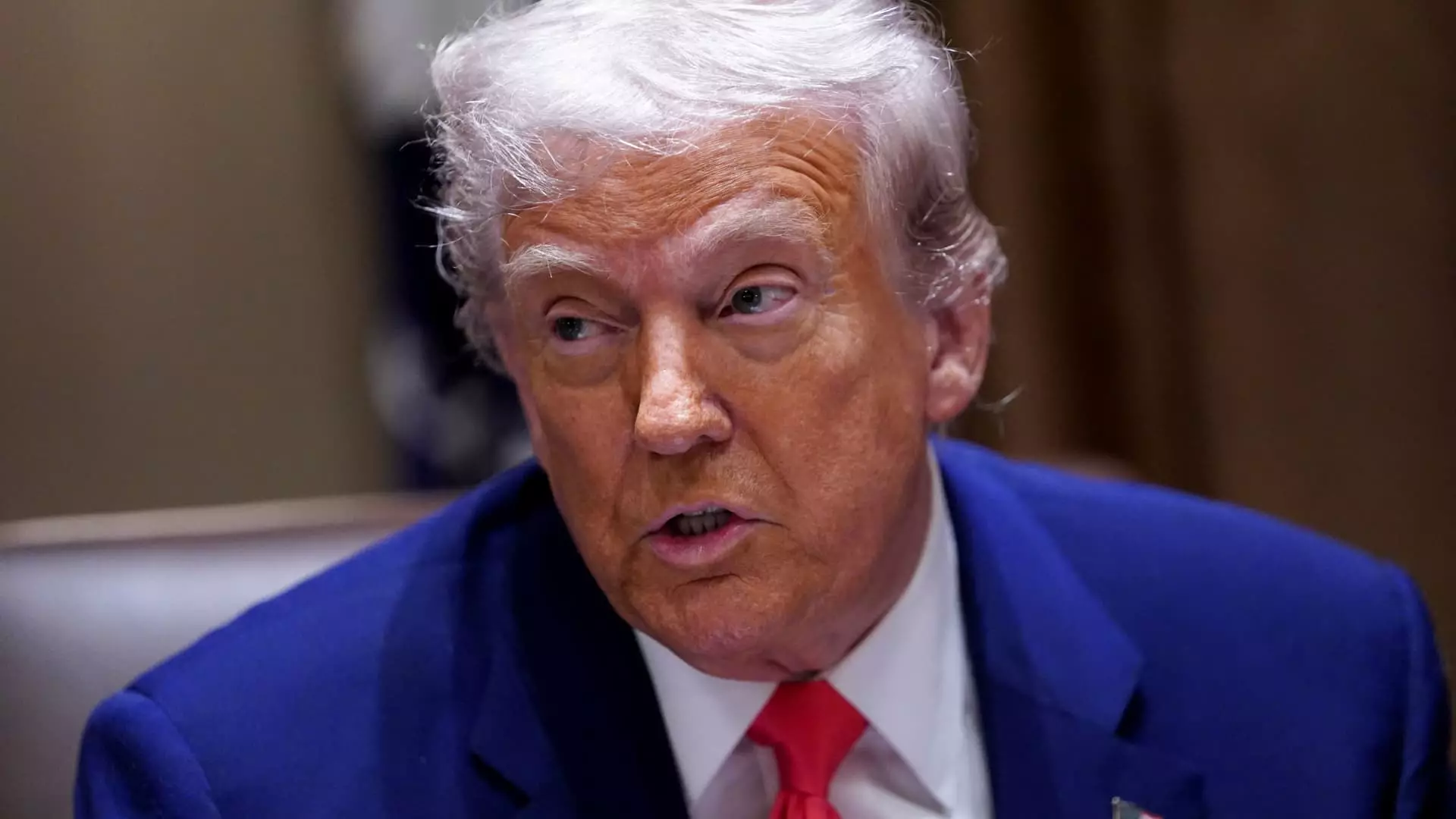In recent months, the world of technology has found itself engulfed in a chaotic whirlwind of political maneuvering and economic anxiety. President Donald Trump’s aggressive imposition of tariffs has threatened the very backbone of the tech industry, leaving companies like Apple in a precarious position. With Trump’s daunting figure looming over trade negotiations, the specter of a staggering 145% tariff on Chinese imports sent shivers down the spines of investors and CEOs alike. However, a sudden shift in policy has thrown a lifeline to tech giants, as U.S. Customs and Border Protection announced a temporary reprieve for smartphones and a range of crucial electronic components. This unexpected turn sends ripples through the market, eliciting both temporary relief and long-term questions about the integrity of trade policy.
The Exemption Euphoria
While the announcement of exemptions could initially appear as a victory for the tech sector, a closer examination reveals a deeply troubling precedent. The exclusion of key items, such as semiconductors and solar cells, appears to represent a capitulation to the pressure exerted by powerful corporations rather than a principled stand on trade. In a sense, this exemption can be labeled a cynical compromise, aimed at placating corporate interests while leaving the door open for further punitive policies down the line. Silicon Valley is celebrating, but one must wonder at what cost? Could this be the beginning of a slippery slope where policy aims to favor a few influential players over the competitive market landscape?
Industry analysts have hailed this exemption as a “dream scenario” for tech investors, embodying an almost euphoric reaction that belies the underlying instability of the situation. Dan Ives, a prominent tech research analyst, emphasized the significance of these exemptions, branding the move a “game changer.” Yet, amidst the jubilation, Ives poignantly noted that the entire manufacturing sector was threatened by the looming tariffs from the day they were introduced. This contradiction raises critical questions about the sustainability of such policy strategies. How long can this temporary relief last, and will other sectors of the economy continue to experience the brunt of punitive tariffs?
The Broader Economic Implications
The recent fluctuation in the stock market—including a remarkable 5% plunge in the S&P 500—indicates that the insecurities of the tariff policies extend far beyond individual companies. Apple alone witnessed a staggering loss of over $640 billion in market value following Trump’s announcements. These numbers don’t just represent theoretical losses; they are emblematic of real-world consequences impacting jobs, innovation, and public trust. When tariffs erupt into volatility, not only do stocks fall, but the wider economic fabric of the nation unravels as anxiety grips market participants.
Moreover, the news of exemptions has caused a momentary glimmer of hope, but the future remains uncertain. With mortgage rates skyrocketing and the bond market responding with uncharacteristic volatility, it’s crucial to question the White House’s decision-making process. This shift in approach—including a 90-day moratorium for most countries—is a likely attempt to stabilize the economy, which makes one ponder if the administration is more concerned about appeasing major corporations than safeguarding American workers.
The Path Forward
Moving forward, the central issue remains: what will become of small to mid-sized tech firms that may not wield the same lobbying power as titans like Apple? The exemptions benefit a select few but could also exacerbate disparities across the tech landscape. If the onward trajectory remains mired in erratic tariff policies, small companies are at risk of being sidelined. At what point does the government balance the scales between supporting tech giants and nurturing emerging companies?
Instead of continuing down this path of turbulent tariffs, the focus should pivot toward establishing a more coherent trade policy that encourages innovation instead of stifling it. As the tech industry breathes a collective sigh of relief, we must not lose sight of holistic solutions that ensure equitable growth across all sectors. In this paradoxical landscape of victory and uncertainty, the stakes have never been higher.

